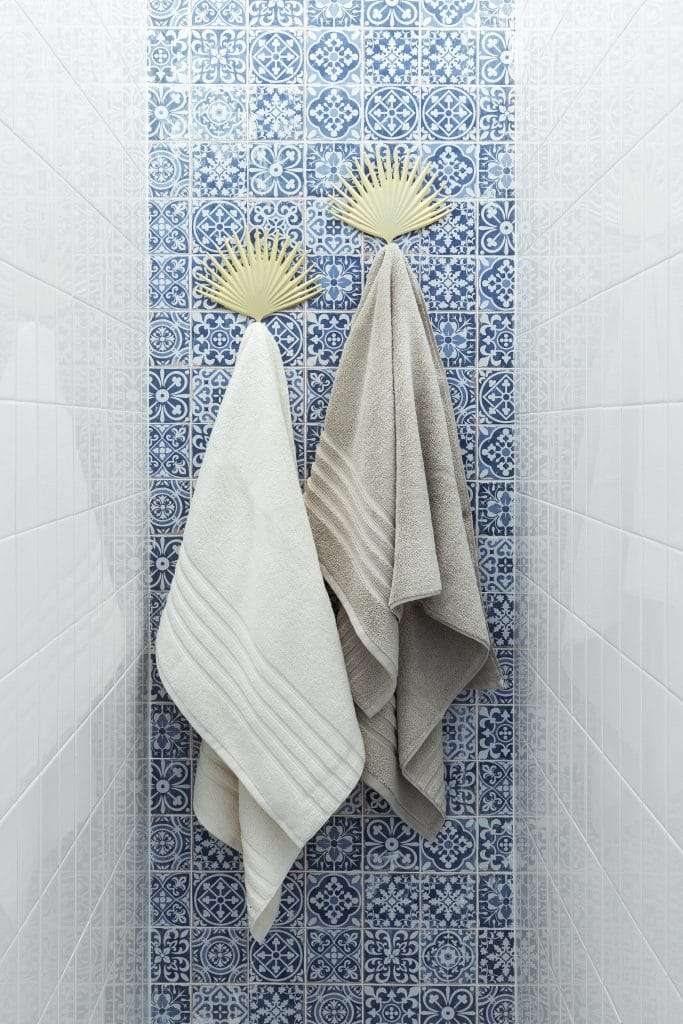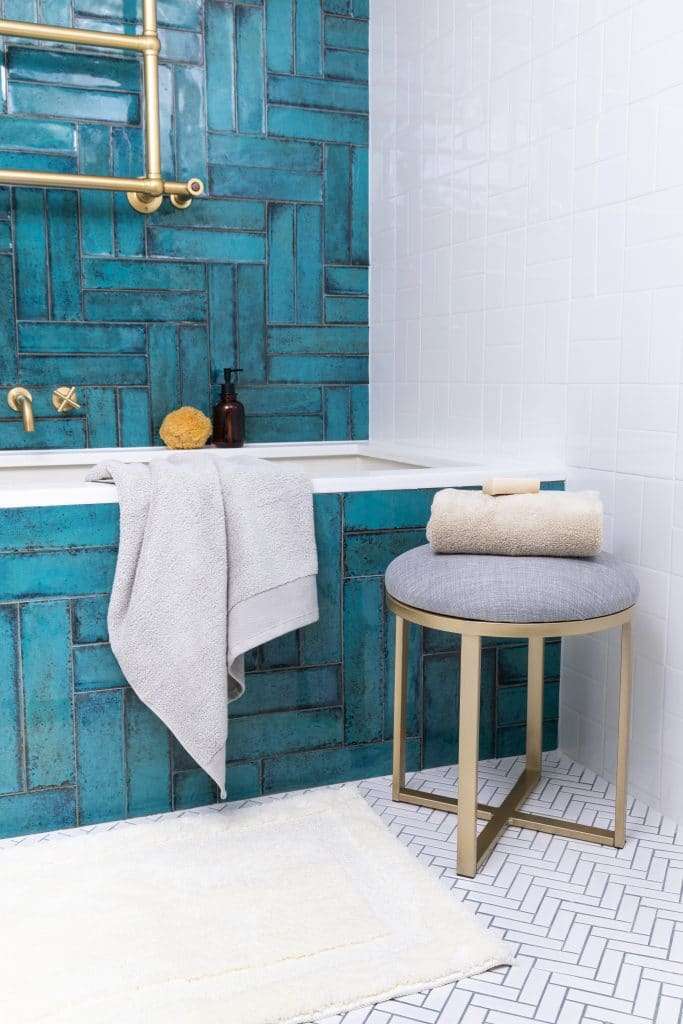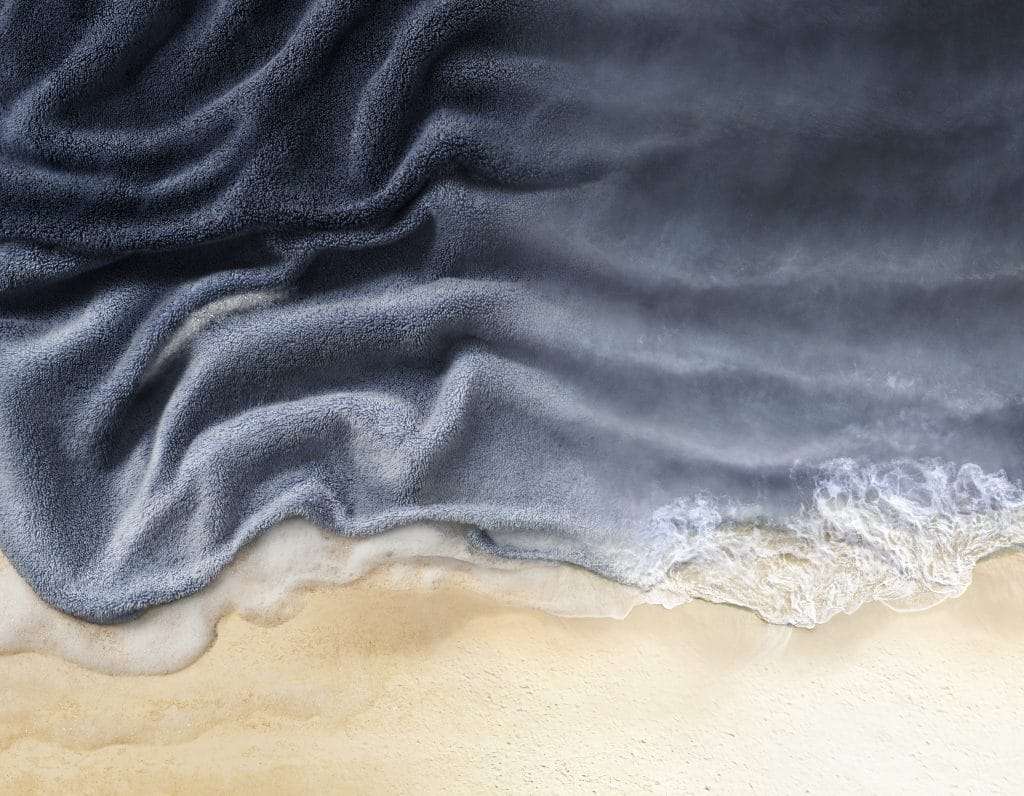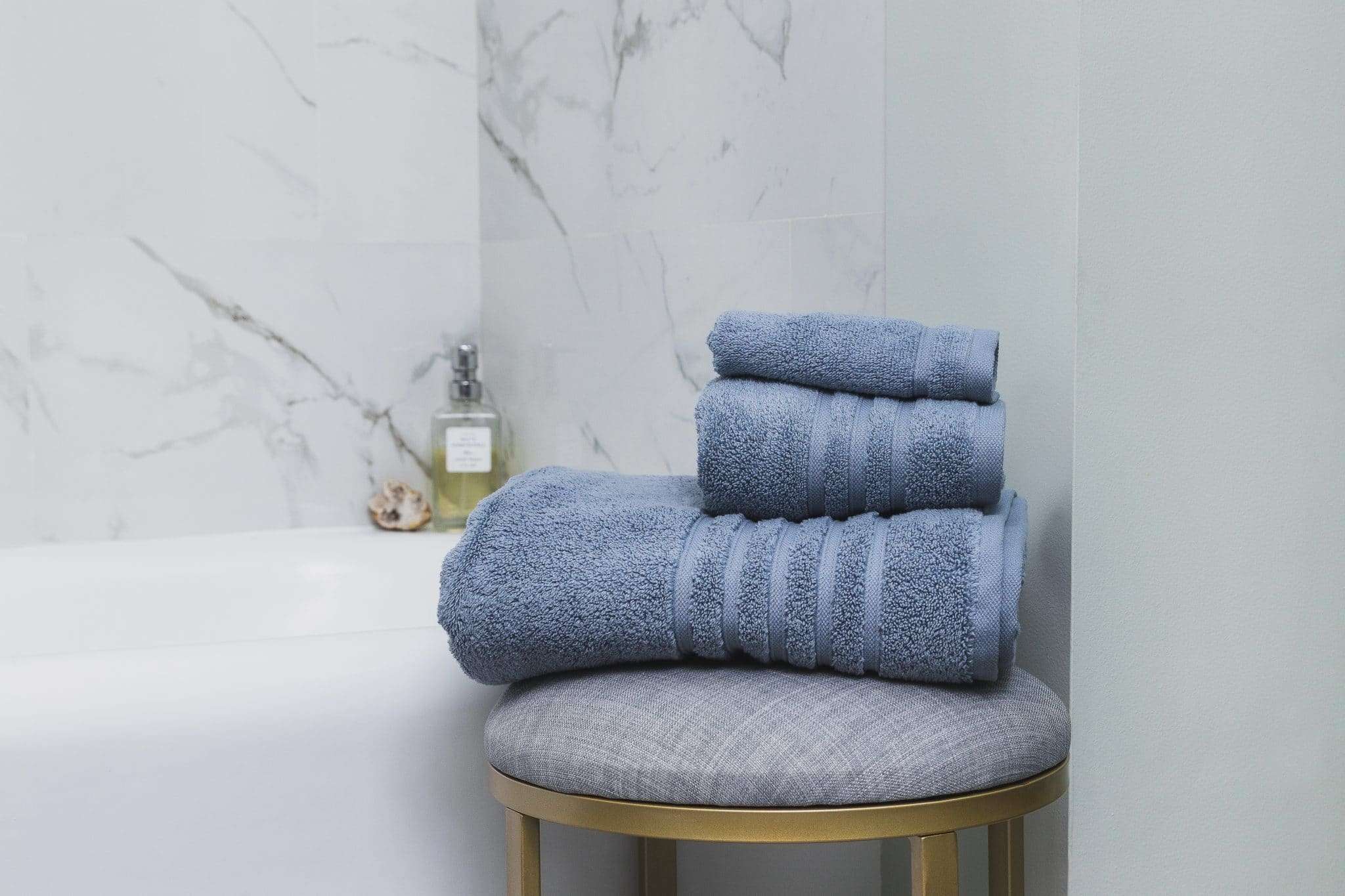
Micro Cotton is more than just the leading producer of sustainable cotton towels—it’s leading a revolution in conscious business.
What’s in a towel? It’s just pure fluffy goodness, right? Turns out it’s actually a lot more complicated than that. And for leading towel brand Micro Cotton, it’s the reason it set out to make the most sustainable towel on the planet.
“Since 1932, Micro Cotton has been caring for the environment and the local community—it is ingrained as part of the foundation Micro Cotton was built on,” Micro Cotton Director, Vikram D. Krishna, tells Ethos via email.
“Sustainability to Micro Cotton not only means leaving the smallest ecological footprint through sustainable practices, but also serving the local community by providing healthcare, education and a safe and responsible workplace,” Krishna says.
Based in India, the world’s largest cotton producing country, Micro Cotton became aware of environmental issues plaguing the country.
Global water shortage
According to the World Resources Institute, India is a high water stressed nation, with more than 1.2 billion people to feed. “Efforts in water conservation and pollution reduction in run-off water are important requirements for the country,” Krishna says.
This made it imperative the brand look deeper into its practices. About 15 years ago, Micro Cotton recognized the impact the global water shortage was having—not just for its products and its local community, but for the planet at large.

The fashion and textiles industries use immense amounts of water and produce more wastewater than any other industry. Cotton, in particular, is a crop that requires a significant amount of water both in growing and processing. This means large amounts of water are diverted away from surface and ground water for cotton production. This is a leading cause of freshwater loss.
Micro Cotton was able to minimize its water consumption by implementing a zero liquid discharge technology. It created its own waste management system, and now, the brand recovers 98.5 percent of its wastewater, and any harmful contaminants are reduced to solid waste, which allows for the production of clean, reusable water instead.
This solid waste “bio sludge” is usable as manure and boiler fuel. This replaces the equivalent of nearly 45,000 pounds of coal and more than 130 gallons of freshwater per year–more than enough for 3,500 households.
And, by shifting its water production and management, Micro Cotton can create 89 towels with the amount of water it takes a conventional towel manufacturer to make just one towel.
The cotton industry
Looking into the industry’s water shortage, though, was a bit like grabbing onto a loose thread —it started to unravel other issues. And the more Micro Cotton looked into problems, the more dedicated it became to improving on its own sustainability metrics.
This included another key area plaguing the cotton industry—the excessive use of man made pesticides and herbicides. Cotton, despite its natural image, is one of the most heavily sprayed crops in the world, according to the Environmental Justice Foundation. It’s why Micro Cotton towels are all OEKO-TEX® certified. This means the towels are made with materials free from harmful substances and that they’re made sustainably and ethically (the two often go hand in hand). It also provides traceability–something consumers are valuing more these days.
“In production, Micro Cotton takes into consideration what the least harmful materials are to the environment and what the consumers are looking for in a bath towel,” Krishna says. The company uses sustainable raw materials such as organic, Better Cotton Initiative (BCI) cotton and recycled cotton, to ensure that harmful chemicals are not contaminating the soil.
India is home to some of the earliest evidence of agriculture on the planet. Grains and legumes played a crucial role in making it a top agricultural hub. It also was at the center of the Spice Trade with the Romans for more than three centuries. But with the modern world, things have changed. Growth has been volatile in recent years with agricultural yields dropping from 5.8 percent in 2005-06 to -0.2 percent in 2014-15.

Eighty-five percent of the nation’s farmers operate on fewer than five acres. Poverty is rampant, as are the suicide rates. Since the mid-1990s, more than 300,000 Indian farmers have died by suicide.
The high suicide rates were largely thought to be tied to the introduction of genetically modified crops in 2009, mainly within the cotton industry. Thousands of farmers entered into seed contracts, primarily with biotech giant Monsanto (now Bayer). GMO cotton now makes up more than 90 percent of the country’s cotton production.
By the early 2000s, Monsanto had developed Bt cotton seeds — genetically modified to produce the toxic Bacillus thuringiensis bacterium. This turned cotton seeds into insecticides. This was good news for cotton farmers who had been dosing their crops with pesticides for decades as the bollworms thrived on the increased cotton yields. But the bollworms were becoming resistant to the chemicals; Monsanto promised a seed that could both increase yields and control pests.
And for some farmers, it worked. For those with access to irrigation and modern tech tools, GMO cotton has improved yields and reduced pests. But for more than 65 percent of India’s farmers who rely on rain, the situation has been much different.
According to Krisha, the household linens market has opportunities for growth to become more sustainable, especially when it comes to responsibly sourced and produced cotton.
“For example, when a company is choosing materials, look for BCI recycled and organic cotton, and eco-friendly dyes over the generic option,” Krishna says. “Micro Cotton uses over 3,000,000 pounds of recycled cotton every year, in addition to using organic cotton. Additionally, it uses certified eco-friendly dyes that are OEKO-TEX® 100, GOTS, ZDHC and BLUESIGN certified.”
A net-zero future
All of this is moving Micro Cotton closer to its net-zero carbon emission targets. Its use of solar and wind power, along with a heat recovery system are helping. But the brand is also constantly working to research and test new technologies that can help it achieve circularity.
“Micro Cotton is working toward circularity by creating more products that are made in a green way and by helping customers be more sustainable,” Krishna says. “Micro Cotton promotes circularity by using methods that reduce water consumption and use of fertilizers and pesticides.”
In 2018, the company launched its ETHICOT product line that was one of the first circular production initiatives in the textile industry. In addition, the Micro Cotton team is constantly researching and trying new ways to recycle used textile items, Krishna says. The ETHICOT products are available under the Oake Brand at Macy’s department stores.

Now, more than 90 percent of the energy used to produce Micro Cotton’s towels comes from clean and renewable resources. The company uses wind energy and built India’s largest industrial solar rooftop.
Becoming a leader in sustainability also means serving the community—both globally and locally. To that end, Micro Cotton guarantees fair wages and safe working conditions. It relies on third-party auditors for its OEKO-TEX® MADE IN GREEN certification that ensures a clean, nontoxic work environment. It is also providing free primary health care to its employees and the greater communities in India where its cotton is produced and manufactured.
It founded two community schools in the last half century—one in the 1960s and one in the 1980s—that offer affordable education for employee children as well as the larger community. Two years ago, it launched a training institute for recent high school graduates and helps match them to area jobs.
The company donated life-saving medical equipment including chest x- ray machines, patient monitors, n-95 masks, surgical gloves to the community hospitals during the peak of Covid outbreak; it also turned part of its factory into a care center. When a second wave of infections hit, the factory’s care center hosted 306 beds and offered free medical care, food, and medicine for more than 750 patients over the course of a month.
Powder Room Pledge
Now, the company wants its customers to take steps in their homes to become more sustainable. “There is a rising demand for bath linens made in an eco-friendly manner, and that is what Micro Cotton brings to consumers with its sustainable bath towel options,” Krishna says.
He says consumers should look for the MADE IN GREEN certification on their products, “as this ensures that all products are manufactured using sustainable processes under environmentally friendly and socially responsible working conditions.”

The company also recently launched The Powder Room Pledge–a consumer focused initiative aimed at helping consumers make their bathrooms more environmentally responsible. Micro Cotton is giving away $10,000 to one lucky winner who participates in the pledge to use toward a sustainable bathroom makeover.
The Pledge includes basic sustainability commitments like reducing water usage by turning the faucet off when shaving or brushing teeth, checking pipes to fix leaks, only running appliances like dishwashers and washing machines when they’re full (and running them in off peak hours), and switching to eco-friendly shower heads. These small steps add up, says the brand, and if everyone pitched in, we’d see notable decreases in water and energy consumption across the globe.
And while it’s the smallest room in the house, according to Micro Cotton, the bathroom uses the most water in the home—with the average American using 80 to 100 gallons every day.
For every consumer pledge made, Micro Cotton is donating one dollar to the Clean Water Fund. The Pledge runs through December 31. Learn more here.


